Motorcycle adventure-sport tire test | RiDE’s roundup of the top road-biased tires for ADV bikes
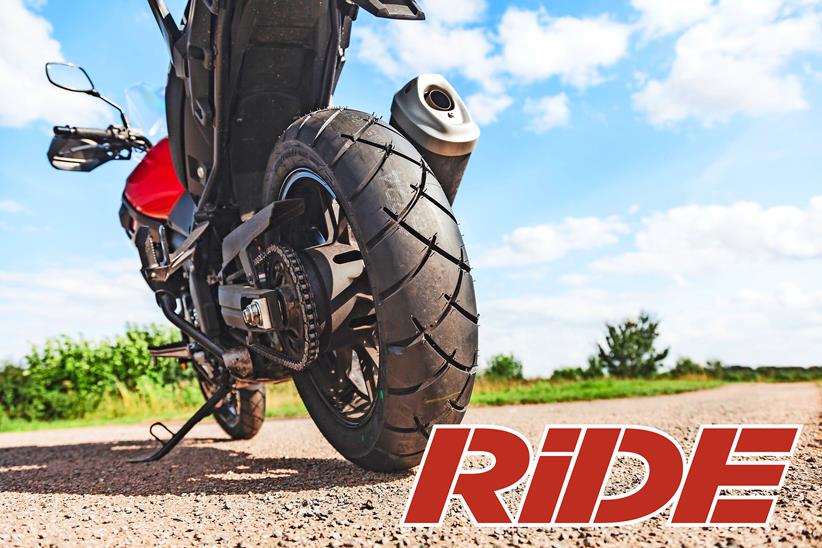
This test was performed by the team at our sister title RiDE Magazine – the biker’s champion that guarantees useful advice on buying a new or used motorcycle, thorough testing and tips on which bits of gear to buy, from helmets to suits and gloves to boots and more. You can find them on Facebook, Instagram, and in print.
Adventure bike tires have a tough life. As adventure bikes get faster and more sophisticated, their tires need to handle more power and increasing lean angles while resisting the inevitable wear that comes from heavy, torque-y bikes. And they need to offer a modicum of off-road ability.
We’ve tested six of the best-selling adventure tires (or Dual Sport tires) on the market except Avon, who declined to participate. All tires are 19-inch fronts and 17-inch rears, a popular configuration on everything from the BMW GS to Honda’s CB500X. And all tires are multi-compound, designed to work across a wide range of situations.
Apart from the Michelin rubber, they all fall into the 90/10 category, meaning they’re designed for 90% on-road use, 10% off road. In reality, few tires will ever see dirt.
But which is best for your bike? Let’s find out.
Will bring out the best in your adventure bike
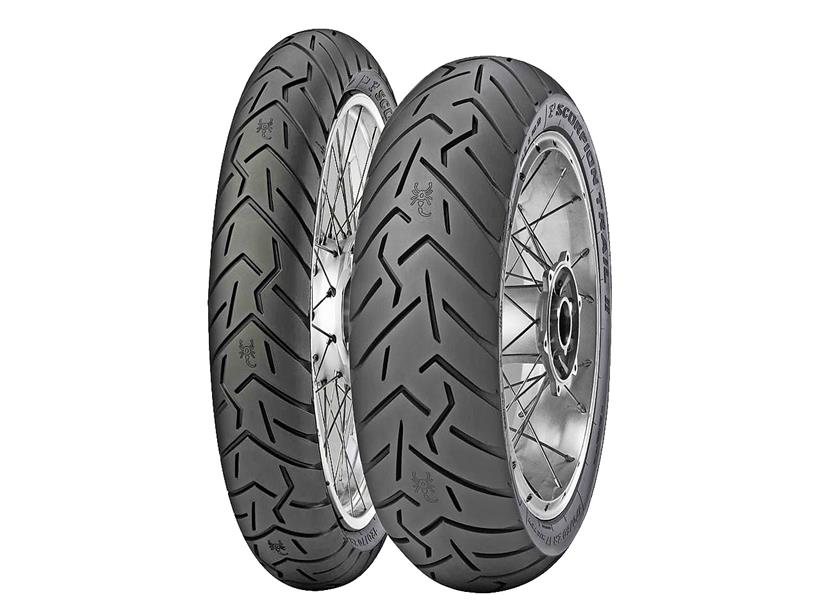

Read our Pirelli Scorpion Trail II track test
Pros
- Light and predictable
- Warm up quickly
- Excellent road holding
Cons
- A little nervous when pushed hard on the throttle
| Weight | 5.25kg Front, 7.35kg Rear |
| Operating Temperatures | 51ºC Front, 54.3ºC Rear |
| Braking Distance (70-0mph) | 53.71m |
Master of all trades, and keenly priced to boot
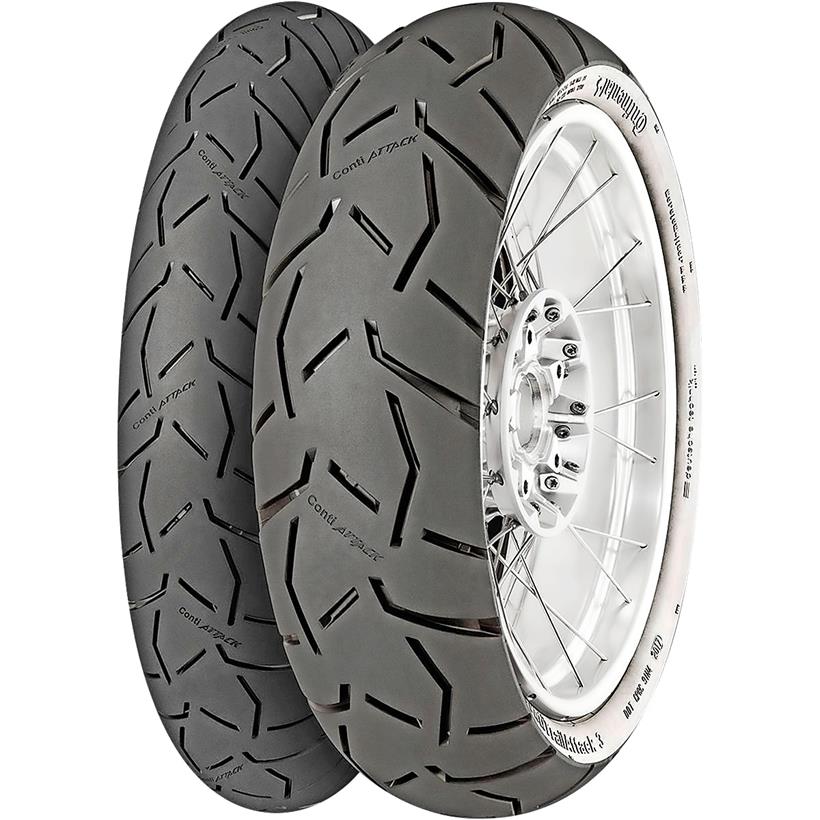

Read our full Continental Trail Attack 3 review
Pros
- Stable in all areas
- Accurate and progressive steering feel
Cons
- Don't hold a line as well
| Weight | 5.42kg Front, 7.82kg Rear |
| Operating Temperatures | 47.5ºC Front, 49.7ºC Rear |
| Braking distance (70-0mph) | 54.78m |
Best value on test. Impressive performance too
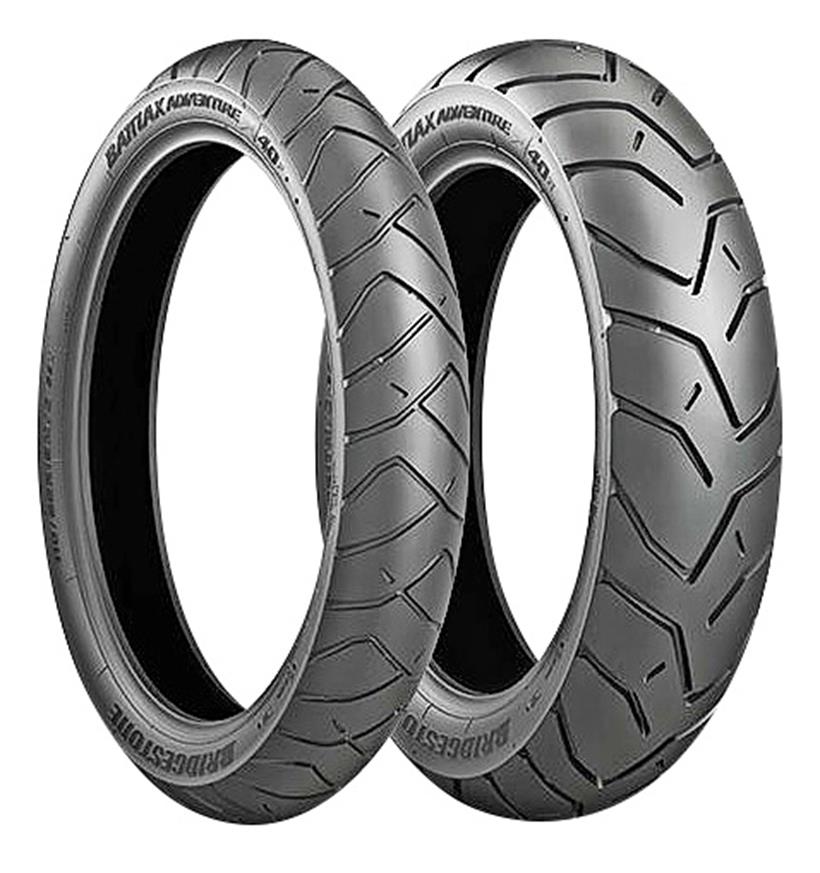

Read our full Bridgestone Battlax A41 review
Pros
- Planted road feel
- Transmit little vibration
Cons
- Heavy steering characteristics
| Weight | 5.23kg Front, 7.23kg Rear |
| Operating Temperatures | 51.2ºC Front, 59.9ºC Rear |
| Braking distance (70-0mph) | 55.19m |
Wallet-friendly and a big improvement on stock
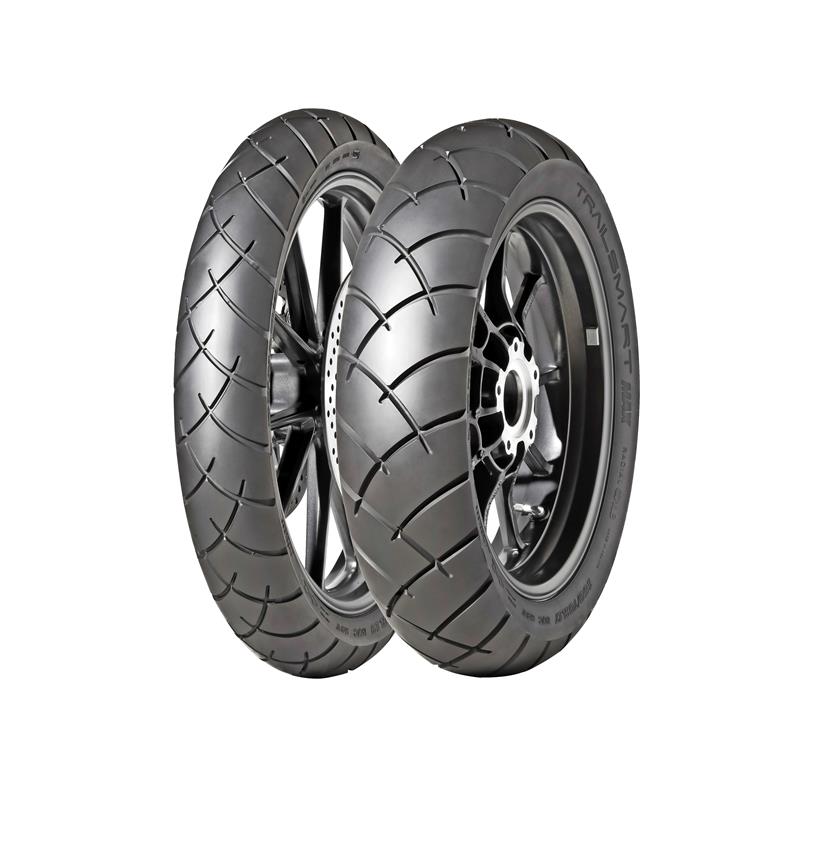

Pros
- Accurate and reasonably quick steering
- Consistent stability across different speeds
- Multi-Tread (MT) technology with ‘ice-ax’ tread pattern is said to give rock-solid grip even on gravel
Cons
- Can feel a bit ragged on bumpy roads
- Noisy on the motorway
| Weight | 5.58kg Front, 7.49kg Rear |
| Operating Temperatures | 57.2ºC Front, 66.4ºC Rear |
| Braking distance (70-0mph) | 53.47m |
Great all-rounder with true green-laning potential
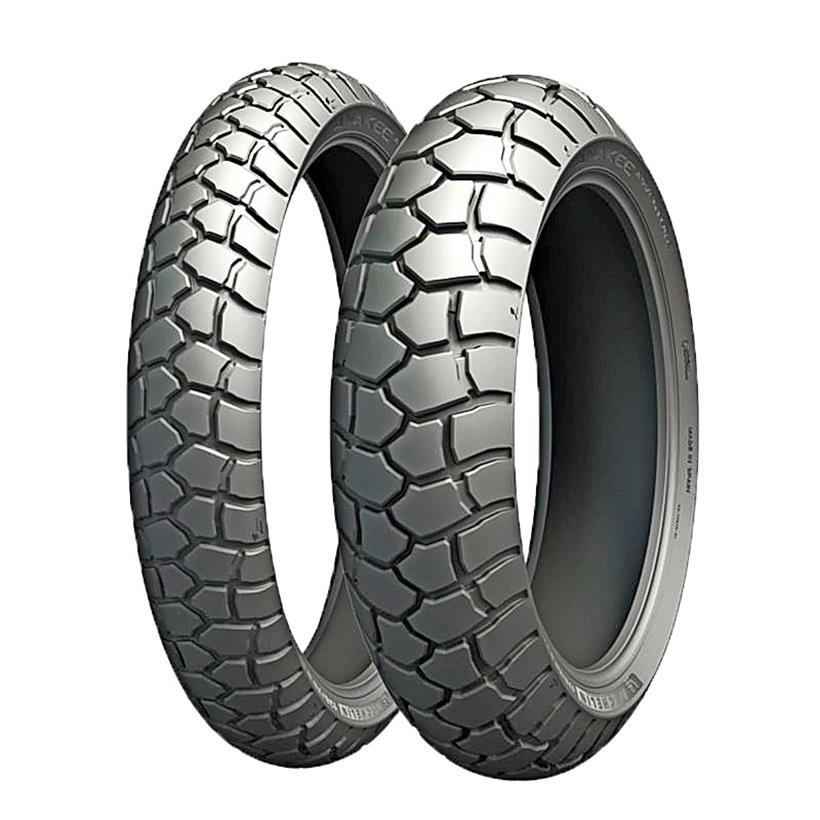

Michelin have also now added the Anakee Road to their range, a purely tarmac-biased option available in adventure bike sizes.
Pros
- Off-road style tread
- Reasonably light feel
- Good feedback from the road
- Enhanced grip for wet and dry conditions
Cons
- Squidgy road feel
- Slow, vague steering characteristics
- Noisy on the motorway
| Weight | 5.24kg Front, 6.62kg Rear |
| Operating Temperatures | 40.6ºC Front, 46.5ºC Rear |
| Braking distance (70-0mph) | 55.57m |
Good alternative to OE but look for a discount
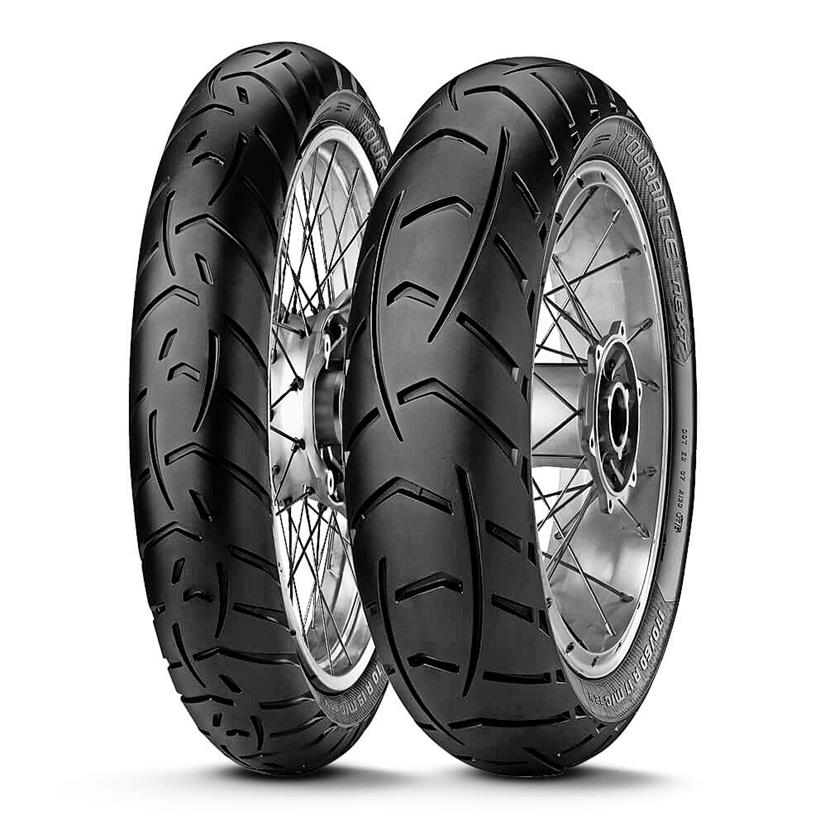

Read our full Metzeler Tourance Next review
Pros
- Direct and responsive steering
- Work well from cold
Cons
- Vague front end during sporty leans
| Weight | 5.25kg Front, 7.45kg Rear |
| Operating Temperatures | 44.8ºC Front, 55.9ºC Rear |
| Braking distance (70-0mph) | 54.57m |
How we tested these adventure tires
This was a blind test. At no point did Matt Wildee or Bruce Dunn know which tires they were riding on — test notes were generated before knowing which tires they were on.
Both riders rode our set route; Matt taking the first stint, with an emphasis on warm-up time and stability. Bruce focused on outright performance.
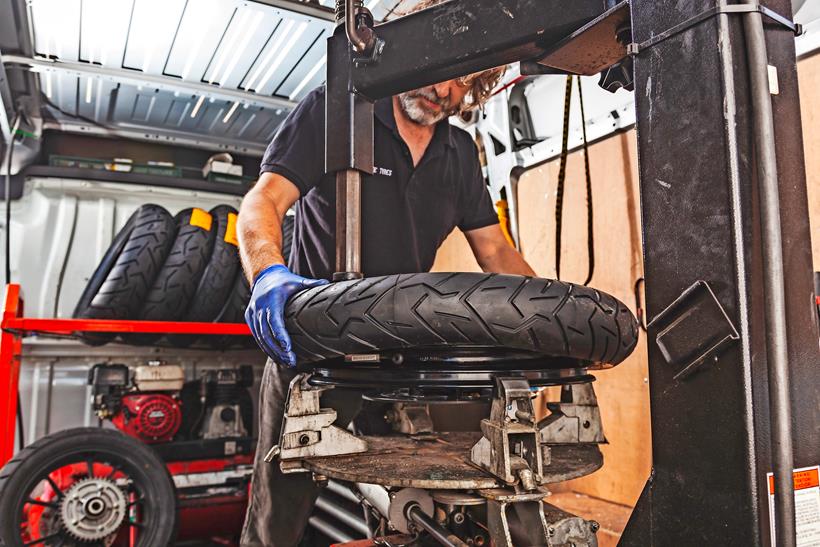
Each rider gave marks out of ten for each set of tires, rating steering, confidence, stability, ride quality and feel. We also measured operating temperature and emergency-stop braking distances. Conditions on the test route were dry, 72°F and we used the manufacturer’s recommended cold pressure throughout the test.
The Route
A 22-mile ride taking in fast, flowing A-roads, bumpy B-roads, a highway stint, plus urban riding over a variety of good and bad surfaces.
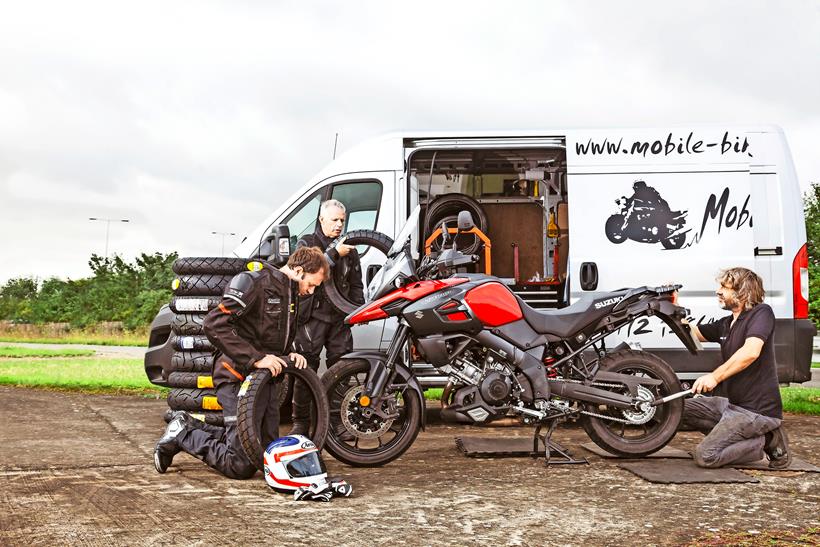
The Bike
We chose RiDE’s long-term Suzuki V-Strom 1000 because its OE tires are merely OK, plus it lacks sophisticated traction control and fancy suspension that can skew feedback. The bike was set on minimal traction control levels.
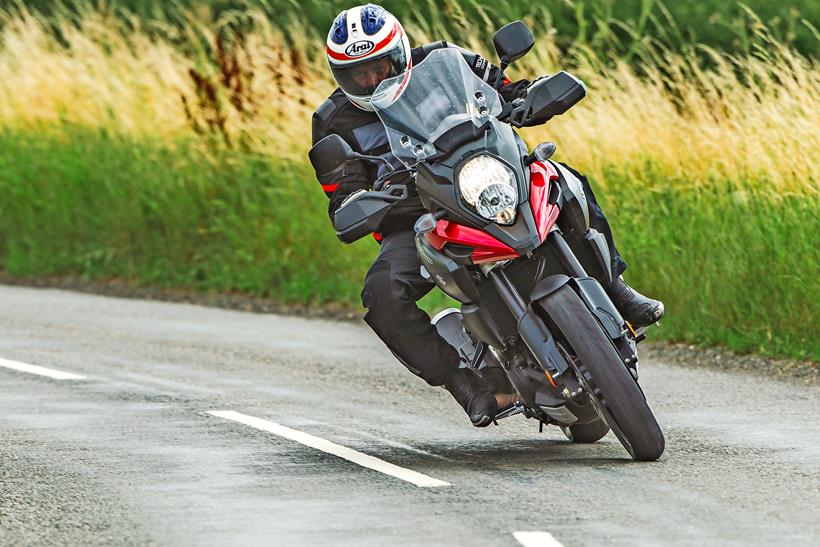
The Logistics
Tests were on the same day and conditions. Support and prices provided by Mark at www.mobile-bike-tyres.co.uk. They don’t include fitting and will vary between different suppliers. They’re a guide.
Cut through the jargon with MCN’s tire explainer video:
About the testers
Matt Wildee – Current editor for RiDE magazine, and former MCN senior editor
Bruce Dunn – Workshop Expert, Datalogger, Speed Tester – Bruce has been professionally testing bikes for over 25 years. He’s a fully qualified motorcycle technician who also has a knack for going incredibly fast on racetracks and runways. In addition to looking after the ‘Workshop How To’ section for MCN, Bruce keeps his own collection of bikes running, including the Yamaha TZ250 – the bike he used to take the 2022 BMCRC Blue Haze GP championship with a round to spare!
Our scores explained:
When RiDE reviewed these tires, they awarded each one a score out of ten for steering, confidence, stability, ride quality, and feel. We halved those scores and rounded them to a rating based on five stars. These are shown in the ratings tab for each tire featured, to help you find the best adventure-sports tire for how you ride. Here’s a guide to what each score means:
1 Star – Avoid at all costs.
2 Stars – Barely acceptable.
3 Stars – Average or adequate.
4 Stars – Above average.
5 Stars – Excellent performance.
- Just so you know, we may receive a commission or other compensation from the links on this website - read why you should trust us.

